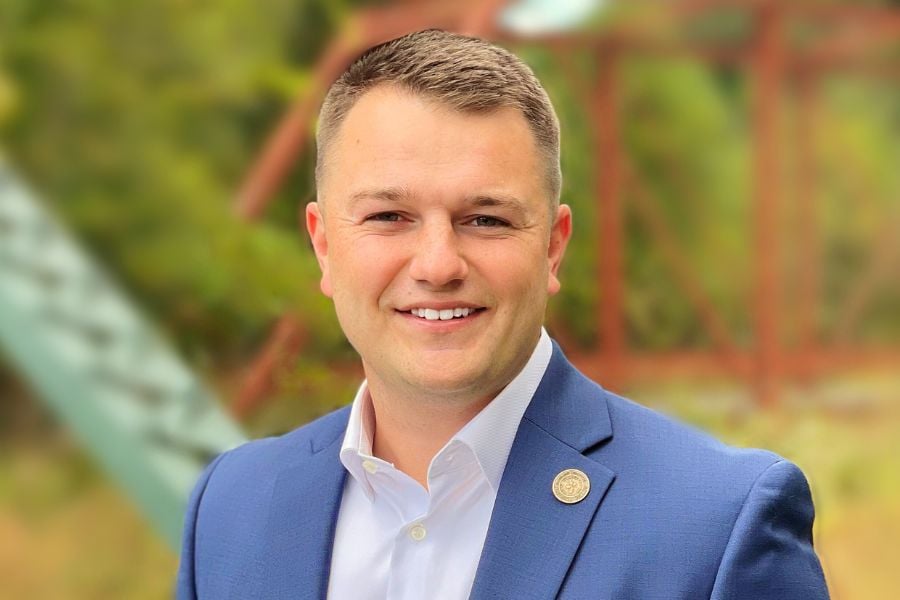

Connor Bauserman, financial planner at Preferred Financial Group (PFG), tackles the challenges posed by evolving fiduciary standards and new cybersecurity mandates with clear, practical strategies. Bauserman says that it’s great that, as a sector, everyone is moving forwards.
“My hope is that the next step is the states get more involved,” he says. “Then that they hold these licenses to a higher standard than what they've done [previously]. There's a really big discrepancy between where we're at as financial advisors and [what] agents are held to. That's just my personal opinion - but I do love that we're moving towards that fiduciary standard, something that we've been held to for a number of years now.”
The SEC's new cybersecurity mandates have significantly impacted Bauserman's practice. At PFG, robust cybersecurity measures are a priority.
“We take cybersecurity very seriously, ensuring we have the proper coverage and policies to protect both us and our clients, especially as we transition further into the digital world. Younger clients prefer to communicate via text messaging, so we ensure that our communication methods are compliant with SEC regulations. This involves using dedicated, monitored numbers instead of personal cell phones to maintain compliance.”
Focusing on young families, Bauserman identifies unique challenges and needs – with his approach going beyond investments, addressing critical questions about budgeting, education choices, and family planning
"Young families face some of the hardest financial decisions, from managing student debt and inflation to buying a home and saving for retirement. It's about creating a comprehensive financial plan that sets them up for future success.”
And this emphasis on financial planning over product sales is a core philosophy at PFG.
"We focus on creating a financial plan, not just selling a product,” says Bauserman. “It's about making sure they have a plan in place for long-term success. These plans are hard to discuss, just because they're often requiring sacrifice and diligent planning. However, we feel that ultimately they'll be rewarded for that in the future. Long-term, as a as a firm, we know that there’ll be a great wealth transfer at some point in time when these Baby Boomers pass on. [It’s about] so making sure that we’re educating Gen X and Millennials – making sure they're ready for that responsibility.”
To support this educational mission, Bauserman and his team have launched initiatives like podcasts and outreach programs.
“Our podcast aims to educate young families. Hearing feedback from clients who have benefited from an episode is incredibly validating. We also use advanced financial planning software to provide detailed plans for our clients. While AI isn't used to answer questions directly, it helps us create content quickly, allowing us to share valuable insights more efficiently.”
And yet, despite the advantages of technology, Bauserman maintains a strong focus on the human element of financial planning.
“Our goal is to understand and address the individual needs of each client, ensuring they receive personalized advice and support.”
Disclosure: Securities and Advisory Services offered through Harbour Investments Inc. Member SIPC.

Canadian stocks are on a roll in 2025 as the country prepares to name a new Prime Minister.

Two C-level leaders reveal the new time-saving tools they've implemented and what advisors are doing with their newly freed-up hours.

The RIA led by Merrill Lynch veteran John Thiel is helping its advisors take part in the growing trend toward fee-based annuities.

Driven by robust transaction activity amid market turbulence and increased focus on billion-dollar plus targets, Echelon Partners expects another all-time high in 2025.

The looming threat of federal funding cuts to state and local governments has lawmakers weighing a levy that was phased out in 1981.
RIAs face rising regulatory pressure in 2025. Forward-looking firms are responding with embedded technology, not more paperwork.
As inheritances are set to reshape client portfolios and next-gen heirs demand digital-first experiences, firms are retooling their wealth tech stacks and succession models in real time.
